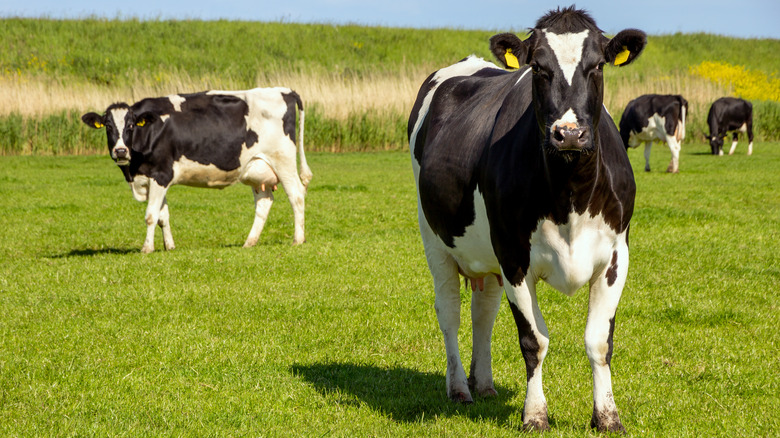Reducetarian Vs. Flexitarian Diet: Does A Difference Really Exist?
The food world loves to label different diets: vegetarian, vegan, pescatarian, kosher, halal, keto, paleo, Atkins — the list goes on. Each has different "rules" and restrictions and may be motivated by a number of causes, from weight loss to animal welfare to religion.
Diets are highly personal, and one person's reason for choosing to restrict or prioritize certain food groups could completely differ from another. For example, one person may choose to eat vegan because they love animals and could not bear to eat them, while another may choose to eat vegan because of the negative environmental impacts of the meat and dairy industries.
With so many diets, it can be hard to differentiate, especially diets like flexitarian and reducetarian that allow seemingly similar foods. So what is the real difference? The flexitarian diet is primarily vegetarian with occasional meat and/or fish. The reducetarian diet refers to someone who is committed to eating less meat, dairy, and eggs.
What does it mean to be flexitarian?
As a combination of the words "flexible" and "vegetarian," the flexitarian diet involves mostly avoiding meat and fish intake but allowing occasional exceptions. This diet may be a good option for someone who wants to eat more plant-based foods, but is not willing to completely give up meat. It was made popular by dietician Dawn Jackson Blatner. Her 2008 book, "The Flexitarian Diet," outlines the inclusive eating plan, which is designed to gradually guide people to eat more vegetables without completely eliminating meat.
Unlike a lot of diets, Blatner's flexitarian diet is more of a lifestyle choice, as it does not have strict rules or calorie restrictions. Its principles are to eat mostly fruits, vegetables, legumes, and whole grains; focus on plant proteins; be flexible and incorporate animal products occasionally; eat less processed foods; and limit sugar and sweets. As the name suggests, it's all about flexibility.
What does it mean to be reducetarian?
Flexitarian diets involve similar foods as reducetarian diets since they are both primarily plant-based but allow occasional animal products. The Reducetarian Foundation defines the diet as the practice of eating less meat — red meat, poultry, and seafood — as well as less dairy and fewer eggs, regardless of the degree or motivation."
According to the Reducetarian Foundation, the diet has three main goals: to improve human health, protect the environment, and improve the welfare of farmed animals by reducing societal consumption of animal products. The foundation also considers vegetarians and vegans to be reducetarian since they have reduced their animal product intake. Unlike flexitarian, the reducetarian diet's mission and values do not address non-animal products, such grains, sugar, or processed foods.
At the surface, strictly looking at what foods are being consumed, you could say that reducetarian and flexitarian diets are essentially the same. But when you look at the ways that the creators define their diets, reducetarian is more focused on reducing animal product consumption, while flexitarian is more focused on increasing plant consumption.


